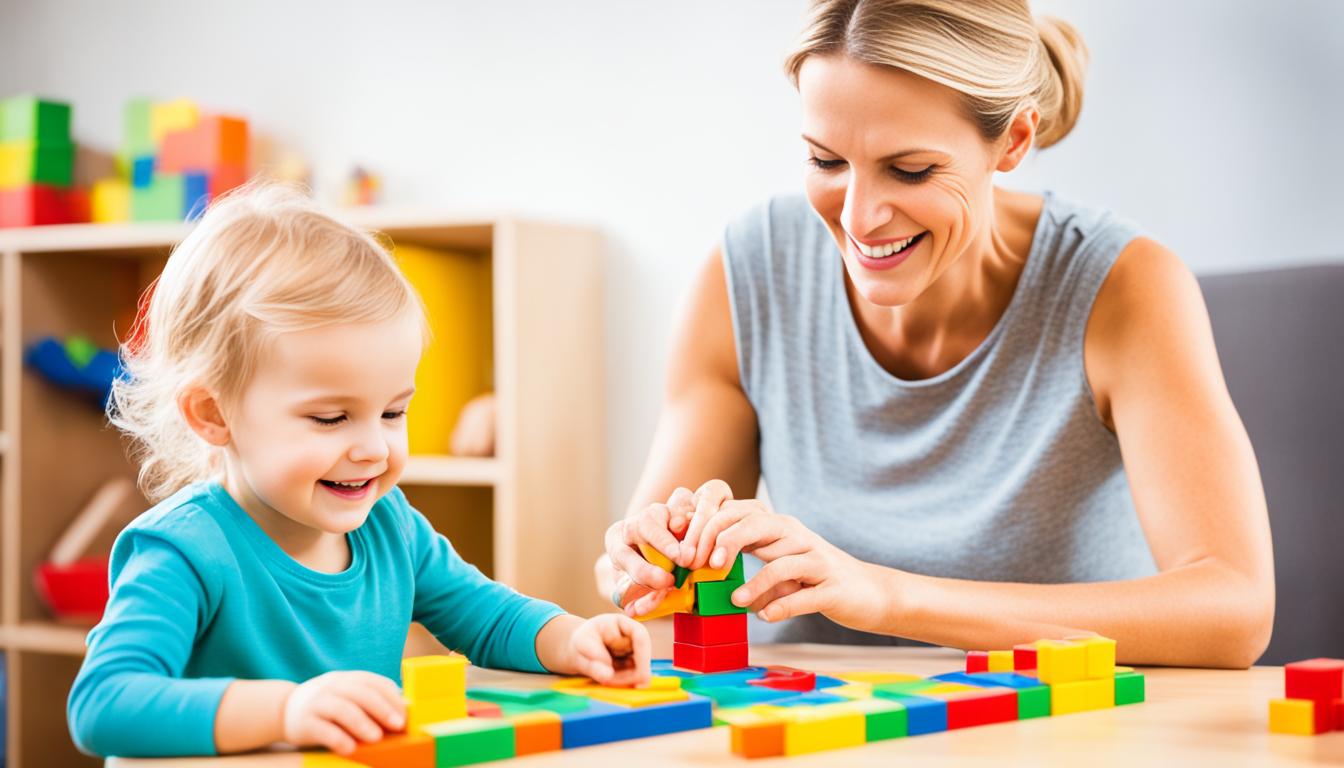Transform Your Parenting: Discover Positive Techniques
Parenting has its challenges, but it can also bring much joy. Imagine creating a home filled with respect, strong connections, and happiness. This is the promise of positive parenting.
Positive parenting involves strategies that change how you handle situations. It helps everyone in the family not just get by but thrive. You will learn to look past misbehavior’s surface, stay steady in your rules, ditch rewards, and manage your own reactions better.
We have put together a guide for you. This article will dive into key techniques of positive parenting. It will explain why it’s crucial to understand your child’s actions, the need for consistency, the downsides of overusing rewards, and managing your reactions. By applying these approaches, you lay down a solid base for better relationships and cherished memories with your kids.
Key Takeaways:
- Positive parenting techniques nurture respect, strong bonds, and a joyful family life.
- Understanding the root cause of behavior helps parents address issues proactively.
- Consistency in routines and discipline creates a stable and predictable environment.
- Avoiding the use of rewards promotes intrinsic motivation and self-control.
- Positive parenting techniques can transform family dynamics and create lasting memories.
Understanding the Root of Behavior and Being Consistent
In the world of positive parenting, knowing why kids act out is key. Finding the cause helps us deal with bad behavior. We can handle tantrums or defiance with a better plan.
Kids can be naughty for several reasons. They might lack certain skills or just crave attention. Getting to the bottom of this helps us guide them in the right way. It often stops bad behavior from happening again. This approach also encourages good behavior.
Being a good parent means being the same every day. Setting regular rules and sticking to them makes a peaceful home. Kids feel safer and can grow better with this steady approach.
Always do what you say you will. If there’s a rule, make sure it’s always followed. This helps kids learn how actions have results. They see that rules are there for a reason and it makes things clearer for them.
For those of us trying hard to be positive parents, these two things are crucial. Understanding why kids do what they do and always sticking to the rules. This way, we encourage our children to grow nicely and make our home a happy place.

Saying No to Rewards and Focusing on Self-Control
Positive parenting doesn’t rely on rewards to shape kids’ behavior. It’s about encouraging self-control and personal motivation. This helps children build character without needing external rewards.
It’s easy for parents to turn to rewards for good behavior. But, too many rewards might lead to kids losing interest in doing good on their own. They could start expecting a reward for every little thing they do.
Positive reinforcement is a better approach. Instead of things, we give kids praise for their effort and progress. This makes them want to behave well without needing a prize every time.
Self-control is something kids can learn. Showing them how to control our own emotions can help. This includes us as parents too. By guiding our children to make good choices, we help them learn valuable skills for managing their feelings.
“Instead of rewarding my son with toys or treats, I praise his efforts and progress. I’ve noticed that he’s become more self-motivated and takes pride in his achievements, which is truly rewarding as a parent.”
– Sarah Johnson, Parent
Fostering a sense of self-control
We must give our children tools to handle their emotions. Teaching them to breathe deeply, talk about their feelings, and solve problems can help them grow emotionally.
Choosing to not use rewards and focusing on inner values makes children more independent. They learn to make choices based on what’s right, not what they get. This builds their sense of responsibility and sets them up for better emotional health.

Seeing a child in an image practicing self-control can reinforce this lesson for parents. It shows how important self-control is in the positive parenting approach.
Conclusion
Positive parenting can change how families interact. It helps build strong bonds. Parents should focus on why their children act certain ways. They should also be steady in how they teach and the rules they set. Using self-control and avoiding bribes makes a home where kids do well.
These methods help everyone in the family respect and support each other. It makes the family’s space full of joy. With the right parenting, families can be happier and get along better. They will make good memories together.
By choosing positive parenting, families find deep joy. They feel full and happy because of love and understanding at home.
FAQ
What is positive parenting?
A way of creating a happy family. It uses methods that build respect, growth, and strong family bonds. It’s all about the good atmosphere at home.
What does positive parenting emphasize?
It focuses on why children act out. It looks at the reasons behind their bad behavior.
Why is consistency important in positive parenting?
Being consistent makes the home stable. It helps kids know what to expect. This is key for a happy family life.
Why does positive parenting discourage the use of rewards?
Rewards are not the best way to inspire good behavior. Positive parenting finds better ways to encourage children.
How can positive parenting techniques transform family dynamics?
They can change how a family works. These methods build better relationships and bring everyone closer together.






